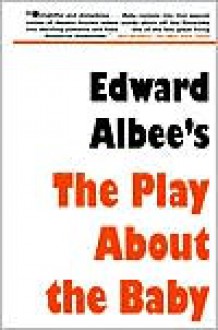Winner of three Pulitzer Prizes for Drama during his long and distinguished career, Edward Albee is one of America's preeminent playwrights. The Play About the Baby is an absurdist black comedy, reminiscent of burlesque in its high spirits and banter, that grapples with such issues as reality and...
show more
Winner of three Pulitzer Prizes for Drama during his long and distinguished career, Edward Albee is one of America's preeminent playwrights. The Play About the Baby is an absurdist black comedy, reminiscent of burlesque in its high spirits and banter, that grapples with such issues as reality and the games we play to define it, the ambiguity of existence, and the agonizing bonds between parents and children. A fresh young couple-Boy and Girl-have a new baby, whom an older couple-Man and Woman-have come to steal. Why? Because, as Man says, "If you don't have the wound of a broken heart, how can you know you're alive?" Brutal loss-the loss of a child or childhood self-has been a recurring Albee theme, and Ben Brantley of the New York Times summed up the critical reaction to The Play About the Baby when he called it a "funny, harrowing dramatic fable . . . as explicit and concise a statement of what Mr. Albee believes as he is ever likely to deliver." Author Biography: Edward Albee's plays include The Zoo Story (1958), The American Dream (1960), Who's Afraid of Virginia Woolf? (1961-62, Tony Award), Tiny Alice (1964), A Delicate Balance (1966, Pulitzer Prize, and Tony Award, 1996), Seascape (1974, Pulitzer Prize), Three Tall Women (1994, Pulitzer Prize), and The Goat, or Who Is Sylvia? (2001-2002, Tony Award, forthcoming from Overlook). He was awarded the Gold Medal in Drama from the American Academy and Institute of Arts and Letters in 1980, and in 1996 he received both the Kennedy Center Honors and the National Medal of Arts.
show less

